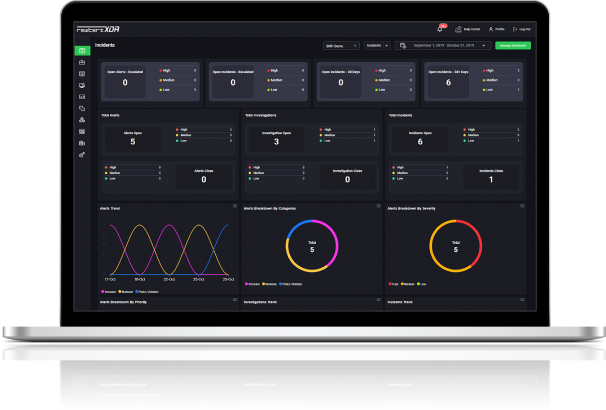

Rewterz Threat Alert – GoldBrute Botnet Brute Forcing 1.5 Million RDP Servers
June 10, 2019
Rewterz Threat Alert – Government Sector in Central Asia Targeted With New HAWKBALL Backdoor
June 10, 2019
Rewterz Threat Alert – GoldBrute Botnet Brute Forcing 1.5 Million RDP Servers
June 10, 2019
Rewterz Threat Alert – Government Sector in Central Asia Targeted With New HAWKBALL Backdoor
June 10, 2019Severity
Medium
Analysis Summary
A credit card skimming campaign recently observed that steals payment card details from compromised websites.
MageCart is the name given to numerous cybercriminal groups that embed digital skimmers on compromised e-commerce sites. The group made global headlines for a series of high-profile breaches on Ticketmaster, British Airways, and Newegg. These groups are still active and continue to target online stores to steal payment card details from unaware customers.
MageCart Skimmer
The malicious javascript code, also called CoffeMokko JS-sniffer, has been around since May 2017. While the skimmer has been modified several times, we will be focusing our analysis on the latest sample. The skimmer is loaded by a direct link in the compromised website’s HTML code and has the following URL format:
<C&C >/src/<compromised website>.js
<C&C>/js/<compromised website>.js
<C&C>/assets/<compromised website>.js
Taking a look at the skimmer javascript, some strings are obfuscated to avoid crawlers and signatures detecting their malicious code. Upon deobfuscation, an array is created with interesting strings, such as the C&C (foodandcot[.]com) and other strings to identify the payment form on the targeted website.

To check that the current page is the payment page, it searches for the keywords onepage, checkout, onestep, and firecheckout in the URL address. Once it is on the correct page, it intercepts the following details after an unaware customer fills in the fields:

Without knowing the replaced characters, it would be difficult to decode back the original information.
The encoded stolen information is sent via a POST request to /tr/index.php, which is the same C&C where the malicious javascript is being hosted.

Inspecting the C&C with the IP address 178.33.231[.]184 revealed other domains it is hosting. As expected, these domain names attempts to imitate legitimate e-commerce websites related to different services and products (e.g. food, fitness, espresso, etc.). This makes it more difficult to spot something suspicious during static analysis.

Impact
Exposure of sensitive information
Indicators of Compromise
IP(s) / Hostname(s)
178[.]33[.]231[.]184
URLs
- foodandcot[.]com
- freshdepor[.]com
- https[:]//foodandcot[.]com/src/yolenis[.]js
- https[:]//freshdepor[.]com/src/yorkarmoury[.]js
- https[:]//swappastore[.]com/src/ispeeches[.]js
- https[:]//swappastore[.]com/src/turtlecase[.]js
- swappastore[.]com
- verywellfitnesse[.]com
Malware Hash (MD5/SHA1/SH256)
- 9b31482f35209ea49bd2daed2fdb16d7196fa54034b6e72576050ca7799ed352
Remediation
Block threat indicators at your respective controls.








